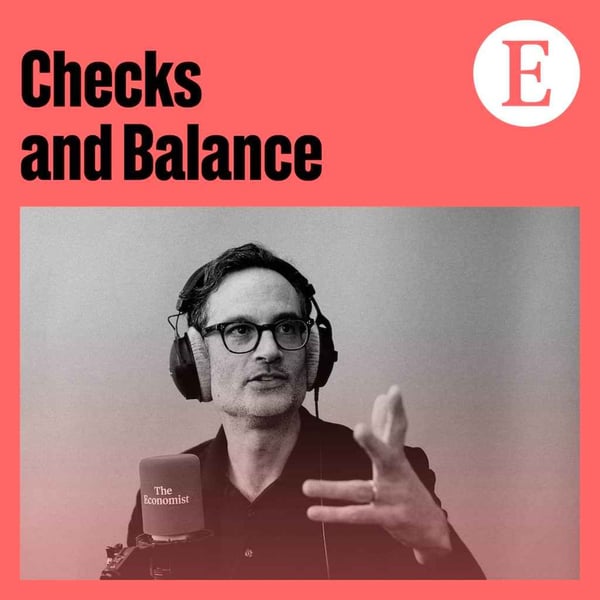Checks and Balance: Entitled
Checks and Balance from The Economist
The Economist
4.6 • 1.7K Ratings
🗓️ 5 May 2023
⏱️ 45 minutes
🧾️ Download transcript
Summary
While Washington debates the debt ceiling, the entitlements time bomb is ticking. The trust fund that pays for much of Medicare, the health-insurance scheme for the elderly, will run out of money by 2031. The fund that pays old-age benefits for Social Security, the state pension scheme, will be exhausted by 2033. Politicians need to agree to a fix, but it’s not clear that they will. What would happen if these funds reach insolvency? And how could that be avoided?
John Prideaux hosts with Charlotte Howard and Idrees Kahloon.
You can now find every episode of Checks and Balance in one place and sign up to our weekly newsletter. For full access to print, digital and audio editions, as well as exclusive live events, subscribe to The Economist at economist.com/uspod.
Hosted on Acast. See acast.com/privacy for more information.
Transcript
Click on a timestamp to play from that location
| 0:00.0 | As Nigel opened his Amazon parcel, it was in love at first sight, sleek design and effortless cornering. |
| 0:07.0 | This vacuum cleaner screamed quality and for a price lower than he ever dreamed, five stars from Nigel. |
| 0:15.0 | With star reviews from you and star prices from us, start your search on Amazon today. |
| 0:20.0 | By the time Irene triplet was born, her father Mose triplet had already lived a full life. |
| 0:32.0 | He was almost 83 when she was born in 1930 and had fought for both the Confederacy and the Union. |
| 0:39.0 | Irene's mother, his second wife, was nearly 50 years his junior, perhaps seduced by his secure veteran's pension. |
| 0:46.0 | She kept receiving it after he died when Irene was 8 and because Irene also had disabilities, she could keep getting it too. |
| 0:54.0 | She received a civil war pension of $73.13 a month until her death in 2020, almost 160 years after the war broke out. |
| 1:05.0 | In many ways, the civil war pensions were America's first great entitlement program. |
| 1:11.0 | Since then, trillions of dollars in federal funds have been given out to support Americans in their old age or with disabilities. |
| 1:18.0 | But now, that money is running low. |
| 1:22.0 | I'm John Prado and this is checks and balance from the economist. |
| 1:28.0 | Each week we take one big theme, shaping American politics and explore it in depth. |
| 1:41.0 | Today, how secure is social security? |
| 1:55.0 | While Washington debates raising the debt ceiling, there's a slow burn funding problem that's going to be harder to solve and probably more consequential. |
| 2:04.0 | The trust fund that pays for much of Medicare, the health insurance scheme for the elderly, will run out of money by 2031. |
| 2:11.0 | The fund that pays old age benefits for social security, the state pension scheme, will be exhausted by 2033. |
| 2:18.0 | Politicians need to agree a fix in good time, but it's not clear that they will. |
| 2:24.0 | What would happen if these funds reach insolvency? And how could that be avoided? |
| 2:34.0 | With me this week to talk about the short term tricky problem of raising the debt ceiling and also about the longer term really hard problem of preventing the pots of money that pay for social security and Medicare from running out of money, |
| 2:51.0 | are Idris Calune coming to us this week from Kentucky and Charlotte Howard in New York. |
| 2:57.0 | Idris, what is going on in the bluegrass state? |
... |
Please login to see the full transcript.
Disclaimer: The podcast and artwork embedded on this page are from The Economist, and are the property of its owner and not affiliated with or endorsed by Tapesearch.
Generated transcripts are the property of The Economist and are distributed freely under the Fair Use doctrine. Transcripts generated by Tapesearch are not guaranteed to be accurate.
Copyright © Tapesearch 2025.

